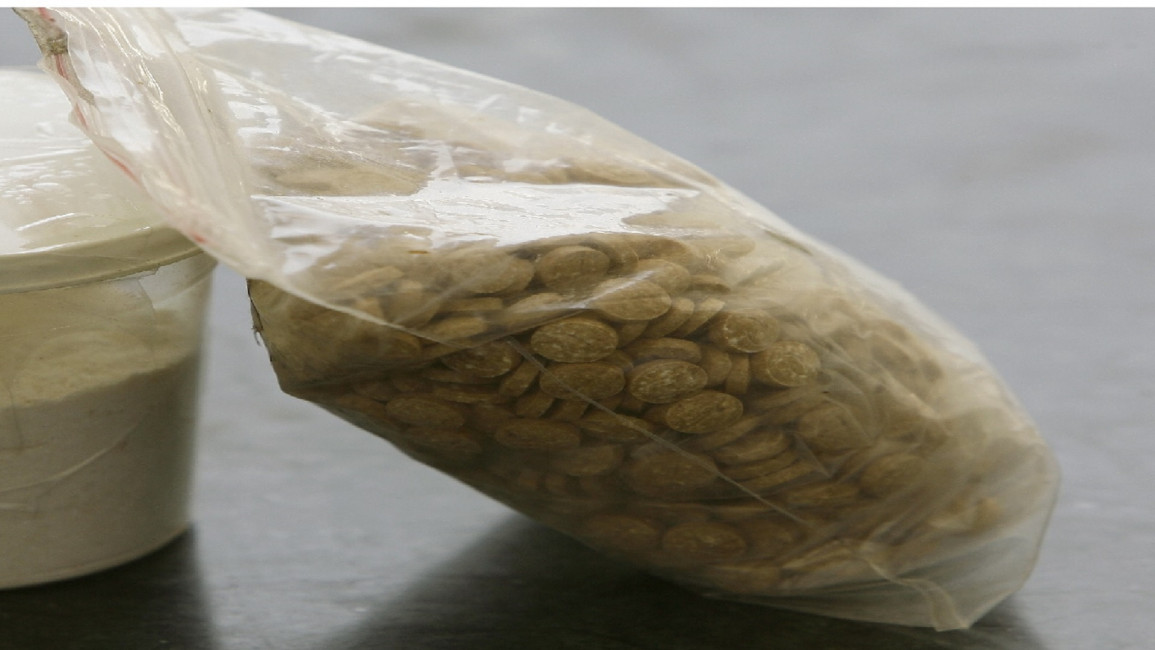Saudi Arabia beheads smugglers, as drug problems soar
Saudi Arabia on Wednesday beheaded a Syrian national convicted for drug smuggling, bringing to 75 the number of executions in the kingdom this year.
Ridwan Awad Mohammed Awad was caught trying to smuggle "a large amount" of amphetamine into the kingdom, according to the interior ministry.
His execution focuses attention not only to Saudi Arabia's judicial system and public beheadings but also to the prevalence of drug use in the hyper-conservative society.
| At medical conferences, suddenly the usage of stimulant drugs is becoming a big topic. |
The Saudi authorities seized more than 41 million amphetamine tablets over the last Islamic year, which ended in October. The interior ministry estimates that the seizures represent just 10 per cent of the total in circulation.
"Government officials have long been in denial about the growing problem," Dr Eyad Khattab recently wrote for the Emergency Physicians journal. "However, that is slowly changing, in no small part thanks to the medical establishment. At medical conferences, suddenly the usage of stimulant drugs is becoming a big topic."
The most popular illegal stimulant is phenethylline, which was sold under the brand "Captagon" until it was banned by the WHO in 1986. Most pills on the market now contain a mixture of substances such as amphetamine, caffeine and ephedrine.
Lebanon was the base of most regional production until producers moved to Syria to take advantage of the lawlessness of the civil war and a booming demand among fighters. In 2012, the Lebanese government confiscated about 12 million tablets. The following year that number dropped by 90 per cent.
Any Captagon not used in Syria is smuggled to other parts of the region, with the largest share going to Saudi Arabia.
The Gulf state accounts for upwards of a third of all global amphetamine seizures and the UN ranks the country as the biggest user of illegal stimulants in the region.
"Looking at the number of people they have beheaded in Saudi Arabia this year alone for drug related offences I would say this is something they seem to be very paranoid about," said Human Rights Watch, Saudi Arabia researcher, Adam Coogle.
Three ways to go
Saudi Arabia has three broad categories under which people can be sentenced to death.
| They realise an end to executions is unlikely but they want an end to discretionary death sentences. |
Someone convicted of murder can be killed under an "eye-for-an-eye" principle.
Then there are 'Hadd' crimes that have clear definitions and punishments in Islamic law, which Saudi Arabia has interpreted "widely" according to HRW's Coogle.
Finally there are sentences made at the discretion of the judge, which include all drug-related convictions.
It is these cases that are most opposed by those campaigning against Saudi Arabia's policy of beheadings.
Saudi Arabia is one of the few countries with no written criminal penal code, and regulations are so vague that it is often unclear what specific acts constitute crimes. People can be executed for a long list of crimes such as adultery, sorcery and apostasy, among others.
The Death Penalty Worldwide Database shows that Saudi Arabia has one of the highest execution rates in the world.
"Most people active on this in Saudi Arabia realise an end to executions is unlikely but they want an end to discretionary death sentences," said Coogle.
Amnesty International has suggested that Saudi Arabia runs a yearly quota system for beheadings, with numbers of executions surging towards the end of the Islamic year.
In August this year 26 people were beheaded, more than the total for the first seven months of the year.
Last year a committee of members of the ministries of interior, justice and health proposed the end to beheading in state-sanctioned executions. A "shortage in official swordsmen" and their "belated arrival to execution yards" were two of the reasons given for the change.
Al-Araby al-Jadeed's requests from comment were not returned by the Saudi Arabian embassy in London and the ministries of justice or interior in Riyadh.


![President Pezeshkian has denounced Israel's attacks on Lebanon [Getty]](/sites/default/files/styles/image_684x385/public/2173482924.jpeg?h=a5f2f23a&itok=q3evVtko)



 Follow the Middle East's top stories in English at The New Arab on Google News
Follow the Middle East's top stories in English at The New Arab on Google News


